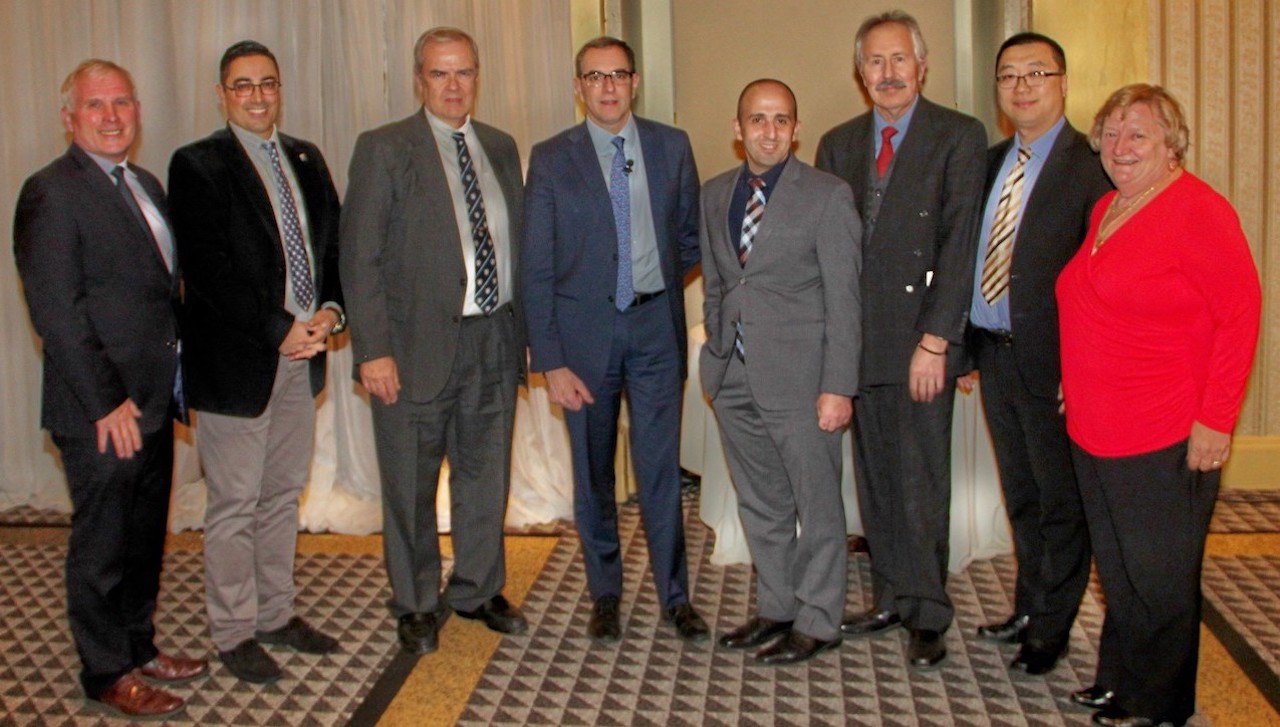The China Shock and U.S. Election Discussed

David Autor, Ph.D., professor of economics at the Massachusetts Institute of Technology and co-director of the School Effectiveness and Inequality Initiative, discussed the impact on the U.S. of China’s growth as a world-manufacturing exporter from 1980 to 2014, what he refers to as “The China Shock,” at The University of Scranton’s 32nd annual Henry George Lecture.
“China goes from essentially zero percent in 1980 to about 20 percent at present day and that is a remarkable achievement,” Dr. Autor said about the growth of the world-manufacturing exporter. “That is world historic.”
The United States’ world-manufacturing exports during the same period of time peaked at around the year 2000 and fell after that rapidly.
“These two things, it will turn out, are connected to one another,” Dr. Autor said.
According to Dr. Autor, China growth is due to efforts to modernize their country in the 1980s. China created special economic zones along their southern coast, freed the price and wage controls for manufacturing and production, and allowed foreign investment and Western technology into their country.
“This was a remarkable change, China’s productivity rose at a stellar rate, eventually a quarter of a billion people migrated from agricultural areas into these urban areas of production,” Dr. Autor said. “This created a growth of productivity and wealth unlike the world has previously seen.”
China’s growth in productivity and exporting resulted in the loss of manufacturing worker’s jobs in the U.S.
Dr. Autor also discussed how the “China Shock” affected voting patterns in the United States, “in particular, with the rise of populism, by populism I mean a specific type of politics that sort of tells a narrative of a good, hard-working people taken advantage of by an elite.”
Dr. Autor studied whether this “populist activity” was prevalent in areas where voters were exposed to the China trade shock and saw how voting patterns shifted in those locations. He observed in the House of Representatives from 2002 to 2010 that there was a movement of conservative Republicans being elected consistent with voters in the locations that were affected by the trade shock.
“This particular phenomenon contributed to a pretty epochal seat change in United States politics,” Dr. Autor said.
Considered the preeminent public lecture series on economics in Northeastern Pennsylvania, the Henry George Lecture Series is presented by the University’s Economics and Finance Department and the campus chapter of Omicron Delta Epsilon, an international honor society for economics. Among the distinguished list of speakers who have spoken at previous lectures are nine winners of the Nobel Prize in Economics: Robert Shiller (2013), Tom Sargent (2011), Peter Diamond (2010), Paul Krugman (2008), Joseph Stiglitz (2001), George Akerlof (2001), Amartya Sen (1998), Robert Lucas (1995) and Robert Solow (1987). The lecture series is named in honor of the 19th century American economist and social reformer and is supported financially by a grant from the Robert Schalkenbach Foundation.
The University’s 32nd Henry George Lecture took place in the Grand Ballroom in the Radisson Lackawanna Station Hotel in November.







